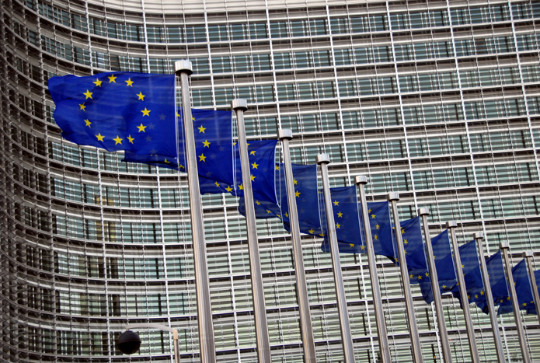 The EU Commission in Brussels, courtesy of ec.europa.eu audiovisual services.
The EU Commission in Brussels, courtesy of ec.europa.eu audiovisual services.
EU Shows it’s Serious about Emissions with INDC
As the calendar moves closer to “COP21,” the upcoming climate summit in Paris this year where leaders are hoping to strike a global climate deal, it is still uncertain whether any meaningful agreement can be reached. As the Kyoto Protocol was plagued with problems of double counting and free riding, the global community is putting considerable effort into preventing a recurrence of the same problems. To this end, one agreement of COP20 was that all parties needed to state their “Intended Nationally Determined Contribution,” (INDC) publicly and to the UNFCCC. The hope is that a high level of transparency in the process, as well as an inclusion of developing nations will provide more durability to any agreement that emerges from Paris.
On February 25th, the European Commission stated its proposed INDC for the EU, a 60% reduction of GHG emissions of 2010 levels by 2050 (40% by 2030). Not long after, on February 27th, Switzerland submitted their own official INDC to the UNFCCC. Switzerland will be aiming for a 50% reduction of their 1990 levels by 2030. Both of these goals are extremely lofty, but not terribly surprising for Europe, which has had high incentives to transition towards low carbon economies and reduce dependence on foreign energy.
The importance of these ambitious INDCs goes beyond their tangible benefits for the environment though. Europe has set a precedent for the expected contributions of the agreeing parties, and is exhibiting a commitment to keep warming to a minimum, which is not surprising since the Europeans have led on climate change for many years. One of the real benefits of the EU is as a multinational group, it has shown how to get a diverse group together on climate. Europe wants the world to know that it’s dead serious about climate change, and potentially could use their high contributions as a bargaining chip in the Paris negotiations to elicit concessions from other parties and minimize free riding.
Although most of the information regarding the INDCs is preliminary and speculative at this point, they will play a critical role in defining the success of any future climate agreement. One thing is for sure though: Europe is determined to not be the one that causes the agreement to fail.






[…] EU Shows it’s Serious about Emissions with INDC Philip Rossetti As the calendar moves closer to “COP21,” the upcoming climate summit in Paris this year where leaders are hoping to strike a global climate deal, it is still uncertain whether any meaningful agreement can be reached. As the Kyoto Protocol was plagued with problems of double counting and free riding, the global community is putting considerable effort into preventing a recurrence of the same problems. To this end, one agreement of COP20 was that all parties needed to state their “Intended Nationally Determined Contribution,” (INDC) publicly and to the UNFCCC. […]
[…] about from the Conference of the Parties in Paris later this year, and comes on the heels of the EU’s INDC which ASP has […]